Filter by
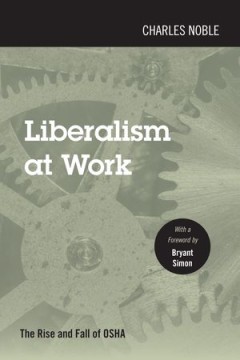
Liberalism at Work : The Rise and Fall of OSHA
On paper, the Occupation Health and Safety Act (OSHA) required employers to reduce the risks of illness and injury on the job regardless of the cost. Department of Labor health and safety inspectors could now show up unannounced at factories, construction sites, and offices and levy fines against employers who failed to comply. OSHA never lived up to its promises, however. Within a decade of th…
- Edition
- -
- ISBN/ISSN
- 9781439917961
- Collation
- -
- Series Title
- -
- Call Number
- 650
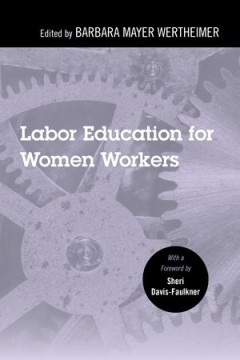
Labor Education for Women Workers
Labor Education for Women Workers was first published in 1981, a year that marked a significant shift in labor-movement history. When Barbara Wertheimer, working with a team of leading labor educators, published this essential text, it raised awareness of the importance of creating space for women workers to have solid labor education. They also identified a major gap in the literature on labor…
- Edition
- -
- ISBN/ISSN
- 9781439918043
- Collation
- -
- Series Title
- -
- Call Number
- 650
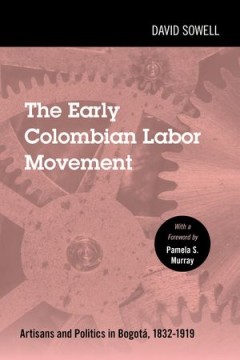
The Early Colombian Labor Movement : Artisans and Politics in Bogota, 1832-1919
In The Early Colombian Labor Movement, David Sowell traces the history of artisan labor organizations in Bogotá and examines long-term political activity of Colombian artisans in the century after independence. Relying on contemporary newspapers, political handouts, broadsides, and public petitions, Sowell analyzes the economic, social, and political history of the capital's artisan class, a m…
- Edition
- -
- ISBN/ISSN
- -
- Collation
- -
- Series Title
- -
- Call Number
- 650
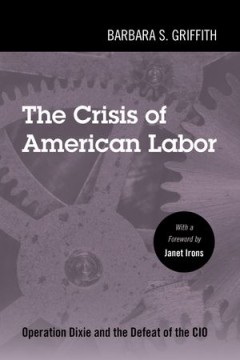
The Crisis of American Labor : Operation Dixie and the Defeat of the CIO
Operation Dixie—the attempt by the Congress of Industrial Organizations (CIO) to unionize the postwar South—was on the defensive almost as soon as it began in 1946. Although the South had a longstanding reputation for being particularly unreceptive to organized labor, the CIO decided that a Southern drive was necessary to consolidate the considerable gains unions had made during the war and…
- Edition
- -
- ISBN/ISSN
- -
- Collation
- -
- Series Title
- -
- Call Number
- 650
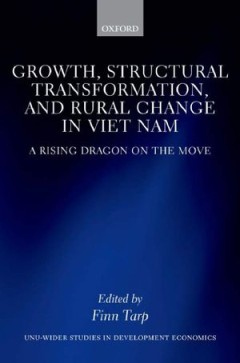
Growth, Structural Transformation, and Rural Change in Viet Nam: a Rising Dra…
Many developing countries—Viet Nam included—continue to struggle to raise incomes per capita. A common feature of the growth and development process is a fundamental change in the pattern of economic activity, as households reallocate labour from traditional agriculture to more productive forms of agriculture and modern industrial and service sectors. Broad structural transformation and wid…
- Edition
- -
- ISBN/ISSN
- 9780198796961
- Collation
- -
- Series Title
- -
- Call Number
- 320.17 GRO g

Cultural Integration of Immigrants in Europe
The concepts of cultural diversity and cultural identity are at the forefront of the political debate in many western societies. In Europe, the discussion is stimulated by the political pressures associated with immigration flows, which are increasing in many European countries. The imperatives that current immigration trends impose on European democracies bring to light a number of issues that…
- Edition
- -
- ISBN/ISSN
- 9780199660094
- Collation
- -
- Series Title
- -
- Call Number
- 572.9 BIS c
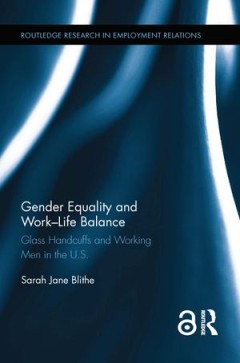
Gender Equality and Work-Life Balance : Glass Handcuffs and Working Men in th…
Pressure to achieve work-life "balance" has recently become a significant part of the cultural fabric of working life in United States. A very few privileged employees tout their ability to find balance between their careers and the rest of their lives, but most employees face considerable organizational and economic constraints which hamper their ability to maintain a reasonable ""balance"" be…
- Edition
- -
- ISBN/ISSN
- 9781138856776
- Collation
- -
- Series Title
- -
- Call Number
- -
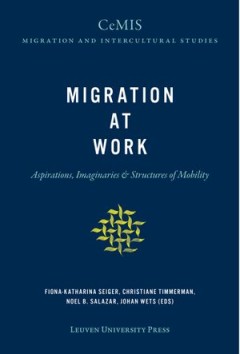
Migration at Work: Aspirations, Imaginaries & Structures of Mobility
The willingness to migrate in search of employment is in itself insufficient to compel anyone to move. The dynamics of labour mobility are heavily influenced by the opportunities perceived and the imaginaries held by both employers and regulating authorities in relation to migrant labour. This volume offers a multidisciplinary approach to the study of the structures and imaginaries underlying v…
- Edition
- -
- ISBN/ISSN
- 9789461663443
- Collation
- -
- Series Title
- -
- Call Number
- 351.81 MIG m
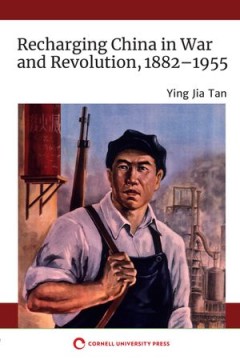
Recharging China in War and Revolution, 1882–1955
In Recharging China in War and Revolution, 1882–1955, Ying Jia Tan explores the fascinating politics of Chinese power consumption as electrical industries developed during seven decades of revolution and warfare. Tan traces this history from the textile-factory power shortages of the late Qing, through the struggle over China's electrical industries during its civil war, to the 1937 Japane…
- Edition
- -
- ISBN/ISSN
- 9781501758973
- Collation
- -
- Series Title
- -
- Call Number
- -
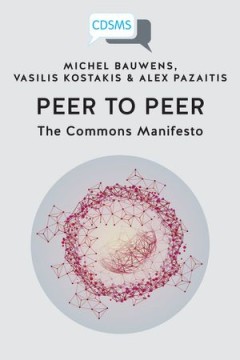
Peer to Peer The Commons Manifesto
"Not since Marx identified the manufacturing plants of Manchester as the blueprint for the new capitalist society has there been a more profound transformation of the fundamentals of our social life. As capitalism faces a series of structural crises, a new social, political and economic dynamic is emerging: peer to peer. What is peer to peer? Why is it essential for building a commons-centric f…
- Edition
- -
- ISBN/ISSN
- 9781911534785
- Collation
- -
- Series Title
- -
- Call Number
- -
 Computer Science, Information & General Works
Computer Science, Information & General Works  Philosophy & Psychology
Philosophy & Psychology  Religion
Religion  Social Sciences
Social Sciences  Language
Language  Pure Science
Pure Science  Applied Sciences
Applied Sciences  Art & Recreation
Art & Recreation  Literature
Literature  History & Geography
History & Geography